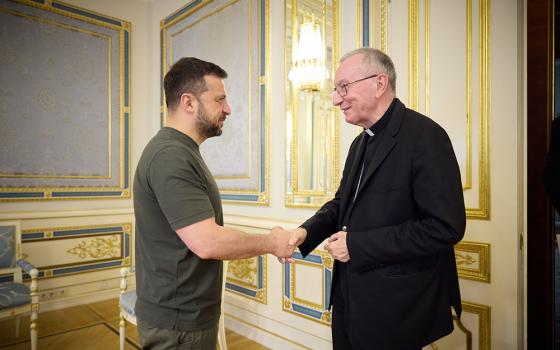Two recent op-eds about Pope Francis’s recent decision to allow all priests to absolve the sin of abortion, one at Cosmopolitan by Karen Barbato and the other in the NYTimes by Jill Filipovic, have drawn a lot of attention. My colleague Jamie Manson believes they are important. I think they are important, too; I suspect, however, my reasons differ from Manson’s reasons. Here are my reasons.
First, both op-eds are poorly reasoned. Barbato cites a study that indicate women’s post-abortion psychological trauma has more to do with the societal and cultural stigma attached to abortion than it does with the procedure itself. The study was conducted by the American Psychological Association. It may come as a surprise to the editors at Cosmopolitan, but the APA, like other academic guilds, is not immune from cultural pressures and biases, and the APA has long demonstrated a bias in favor of abortion rights. In the event, although Barbato does not mention it, there are real methodological problems with this study, problems that have not kept major media outlets from highlighting it as they push the pro-choice agenda. And, of course, the APA is unable to conduct a study of the post-abortion psychological affects on the other person involved in the procedure, the unborn child.
Ah, yes, the unborn child. My second objection to these two essays is that they completely ignore the issue of the moral status of the fetus. I wonder why Barbato and Filipovic did not call attention to a recent TED Talk with Annie Murphy Paul. Actually, I know the answer. Ms. Paul details the studies, studies by hard science, that show the degree to which children in the womb are already learning things. Before they are born, the children learn the sound of their mother’s voice, they develop olfactory senses, and they even can develop a liking for spicy foods if those are the foods their mother is eating during the pregnancy. Such studies, like sonograms, are telling us what the Church has always taught: It’s a baby. As in the case of environmental protection, science is again catching up to Catholic spirituality and theology.
My third objection is that both op-eds maintain an essentially libertarian stance, to which no Catholic can adhere. I could do this. I did it. End of discussion. “And that's the thing about Francis's forgiveness: It may sound nice, but there are strings attached,” writes Barbato. Ah, yes, those pesky strings. We call them solidarity in the Catholic tradition. Filipovic states, “Instead of treating women as adults who make their own decisions, the pope condescends to ‘all the women who have resorted to abortion,’ saying he is ‘well aware of the pressure that has led them to this decision.’ The threat of excommunication, at the very least, makes the church’s views on women’s rights clear.” Our society tells men and women what they can and cannot do with their bodies all the time: No one can ingest certain illegal substances, no one can drink too much and then drive, no one can sell one’s body for sex, etc. These laws are designed to help people from harming themselves and one another. We used to have such laws against abortion in this country – remember, there was even a time when feminists believed abortion was anti-female, but those were the days before libertarian ways of thinking took root and autonomy became a thing, the only thing, to celebrate.
Pope Francis looks at the human landscape and thinks we need more strings and less autonomy. How could he not? This leads him to a stance in favor of human solidarity and opposed to the affirmation of the self, especially the powerful selves, when assessing moral decision-making in our time. “It is difficult for some to recognize that his reasons for taking the moral positions he does on abortion and euthanasia are intimately connected with the reasons for his stance on capitalism and climate change,” observes former Archbishop of Canterbury Rowan Williams. It is not difficult for me. For the editors at Cosmo and the Times? That is another story.
My fourth objection is that both op-ed writers blame Pope Francis for not listening to women and trot out the bugbear of patriarchy. It is true that some pro-life activists and some prelates of the Church speak with little evidence of sympathy for the situation of women facing a crisis pregnancy. I have never been shy about calling out such pro-life advocates for their indifference to the complexity of the situations many women find themselves in, or for their lack of evident human sympathy either. As Meghan Clark demonstrates in her fine response to Filipovic at America, this charge cannot be laid at the feet of Pope Francis. He speaks the biblical language of tragedy and mercy, not the canonical language of crime and excommunication. Clark makes many other important points in her article, too, especially the Orwellian quality to Filipovic’s turning the pope’s commitment to mercy into a form of cruelty. To the prometheans among us, I suppose any challenge to self-assertion and self-justification is a form of cruelty.
The language of mercy does not satisfy Barbato and Filipovic. They deny there is any tragedy at all in the procurement of an abortion, no sense of loss. Certainly, many women do experience an abortion as a loss, even those who think it was necessary. One of my dearest friends in the world had an abortion, thinks to this day it was the right decision, but she recognizes it was a tough decision. Barbato and Filipovic seem intent on not listening to women like that. And, as for the bugbear of patriarchy, the Church’s opposition to abortion and embrace of mercy is not an example of men making rules for women. God set forth the rule against killing the innocent and revealed the truth of His great mercy. True, He revealed these through Moses who, while not technically a Patriarch of Israel, had patriarchal qualities, and Jesus of Nazareth, who emphatically did not. From a strategic point of view, I wish that my arguments against these two essays were being written by a woman, not a man, but let us admit the limits of claims to a privileged hermeneutic on this issue. One does not need to have actual experience of a thing to be able to evidence an opinion about its moral quality. I am not a burglar, and I have never been burgled, but I have an opinion about burglary. It is Pope Francis’ great gift to the Church, however, that he has had a lifetime of pastoral experiences which inform his deep commitment to mercy as well as his repeated acknowledgement of his own sinfulness.
So, if these articles are so filled with flawed reasoning, why do I think they are important – nay, I will go further and say they both give me hope. For a simple reason: It is easier to fight the Devil when he has shed his disguises. Both Barbato and Filipovic write in this new meme we have seen in the last year among pro-choice advocates. Afraid that they are losing the complicated argument, due to advances in neo-natal research and increasingly more pro-life attitudes among young people, they put forward a no-apologies language, the moral reasoning of Donald Trump. He, too, said he has never sought forgiveness. Actually, the analogy is worse for Barbato and Filipovic – at least Trump admitted he made mistakes and tried to learn from them. What is most horrific about these essays in the sheer lack of human empathy, akin to what we witnessed from Doctor Deborah Nucatola in the first Planned Parenthood video, breezily eating her lunch while discussing the dismemberment of unborn children. The sheer lack of human empathy is what astounds. It has astounded some of my most pro-choice friends. And, that is why I am hopeful. This amoral language, so lacking in any shred of human empathy for anyone but oneself, shows the pro-choice movement to be isolated and desperate. Contrasted with the human sympathy that seems to come forth from every pore of Pope Francis, I think most people will chose his message, the biblical message, of sin and mercy, over this truly horrible language of no remorse, no regrets. The libertarianism of the left is as ugly as the libertarianism of the right. God bless Pope Francis for calling it out. And, God bless Barbato and Filipovic for demonstrating it in all its ugliness.




